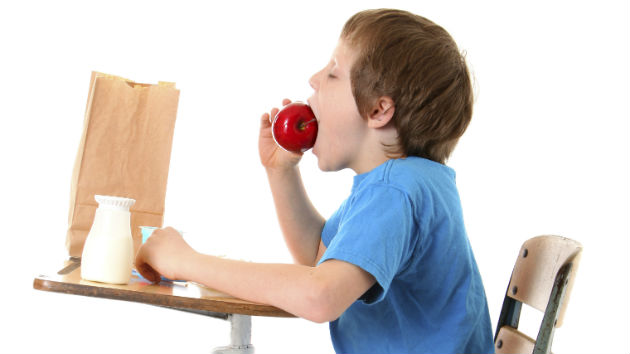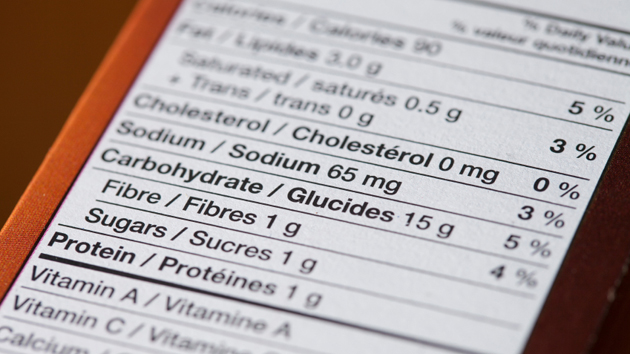
<a href="http://www.shutterstock.com/pic-249170050/stock-photo-young-man-in-bed-trying-to-sleep.html?src=Gue5f3xrZ_3to9aRjHw7OQ-1-0">FXQuadro</a>/Shutterstock
If you’re nodding off as you read this, don’t blame my prose style. You probably didn’t sleep enough last night, or maybe you just slept poorly. According to the Centers for Disease Control and Prevention, between 50 million and 70 million US adults have some kind of sleep disorder—think insomnia, apnea, or narcolepsy. This troubled slumber, in turn, is linked to increased risk of everything from car accidents to Alzheimer’s.
It turns out your diet might be to blame for restless nights, a new study by Columbia University researchers suggests. The team subjected 26 normal-weight adults to a controlled food regimen—high in dietary fiber and low in saturated fat and added sugars—for four days. On the fifth day, I’ll call this the dietary “free-for-all” day, they let the participants eat whatever they wanted. Each night, they monitored both sleep duration and quality—the number of times the participants woke up during the night, and the amount of time they spent in “slow-wave sleep,” the most restorative sleep stage.
The result: While total time spent snoozing didn’t change over the course of the experiment, sleep quality declined the more people spent their free-for-all day loading up on fiber-light, fat- and sugar-heavy foods. Meals low in fiber and high in saturated fat were associated with significantly less slow-wave sleep, while higher levels of sugar led to more wake-ups. The study subjects also fell asleep faster (an average of 17 minutes versus 29 minutes) on the controlled diet than they did on the self-selected one.
That’s bad news for the average American, who tends to have a horrible diet—lacking in fruits and vegetables and chock-full of ultra-processed crap and excess sugar.
The study doesn’t speculate about why these dietary choices messed with sleep, but a growing body of science links diet to the health and diversity of the gut biome—the trillions of microorganisms that live in our digestive tracts—which in turn affect brain processes. Dietary fiber essentially feeds these vital organisms, and diets low in it have been shown to reduce biome diversity. High-sugar diets, meanwhile, appear to alter the gut biome in ways that seem to promote obesity. The relationship between the gut biome and sleep, however, remains little studied.
Even so, the Columbia study offers a new twist on the sleep-diet nexus. People who chronically experience poor sleep are more likely to endure diet-related conditions like obesity and diabetes, the CDC states. Previous research suggests that sleep deprivation interferes with the hormones that tell us when we’re full—meaning that bad sleep can lead to bad dietary choices. The Columbia study suggests a vicious circle: Bad dietary habits can also muck up sleep.
All the more reason to steer clear of the supermarket’s chips and cookie aisles. “The finding that diet can influence sleep has tremendous health implications, given the increasing recognition of the role of sleep in the development of chronic disorders such as hypertension, diabetes and cardiovascular disease,” the study’s lead author, Columbia’s Marie-Pierre St-Onge, said in a press release.

















